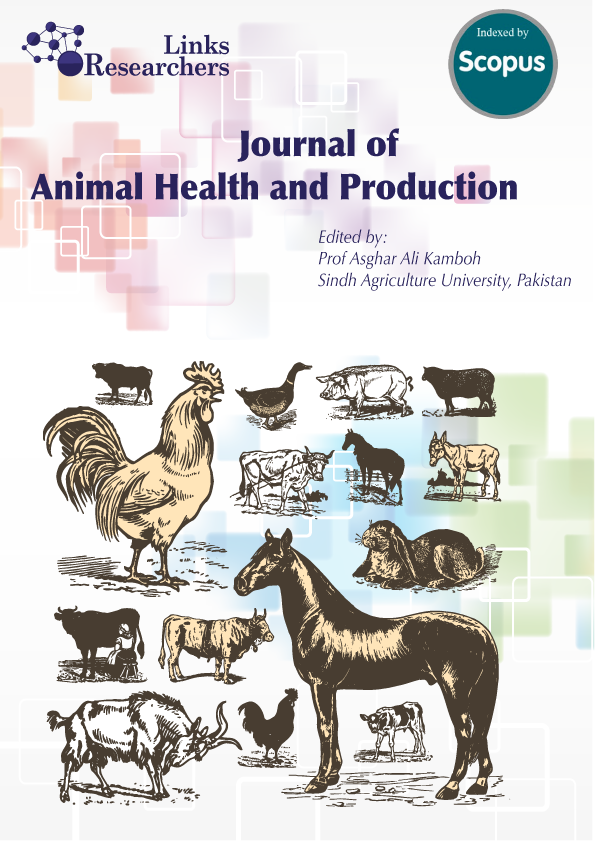Dietary Effect of Zinc on Growth Performance, Carcass Characteristics and Immune Response in Hubbard Broilers Raised under Hot Climate
Dietary Effect of Zinc on Growth Performance, Carcass Characteristics and Immune Response in Hubbard Broilers Raised under Hot Climate
Safdar Hassan1, Shaukat Ali Bhatti1, Fawwad Ahmad1, Asad Ullah Hyder1, Muhammad Arslan2, Ashar Mehfooz3, Ijaz Saleem3, Muhammad Umar Yaqoob4,5, Mushrraf Nazir1, Muhammad Sharif1*
ABSTRACT
Broilers may not have same dietary zinc requirements under temperate climate conditions. This experiment was conducted to evaluate the effect of super dosing of dietary Zn (above National Research Council recommended: 40 mg/kg) on broilers’ growth performance, carcass characteristics, and immune response under raised temperature. A basal corn-soy diet (Zn-40, crude protein (CP): 20%; metabolizable energy (ME) : 3000 Kcal/Kg) was formulated to contain 40 mg/kg Zn. The basal diet was supplemented with three super doses viz; 25, 50, or 75% of NRC recommended (1994) level and then these diets (Zn-50; Zn-60; Zn-70) contained 50, 60, and 70 mg/kg Zn, respectively. Two hundreds day-old broiler chicks were used for this study. Each diet was fed to a group of 50 broilers (Hubbard, BW 40±3 g, mixed male and female) divided into 5 replicates from day 1 to 35 for their life, raised under the temperature of 34 ± 1.3 °C. Results revealed that FCR was reduced (P=0.006) in Zn-50 than in Zn-70, but it was similar to other groups during the starter phase. The highest feed intake (P=0.007) and body weight gain (P=0.013) were observed in Zn-70. Overall data showed that body weight gain was significantly (P=0.006) improved in all Zn-supplemented groups than in the control group. Significantly higher (P=0.027) dressing percentage and lower (P=0.028) abdominal fat rate were observed in Zn-50 than the control group. Results showed that weight of thymus and bursa were increased with supplementation of Zn (70 mg/kg) in diet. Optimal broilers’ performance requires a higher dietary Zn (70 mg/kg) concentration than NRC recommended under high-temperature climatic conditions.
To share on other social networks, click on any share button. What are these?






